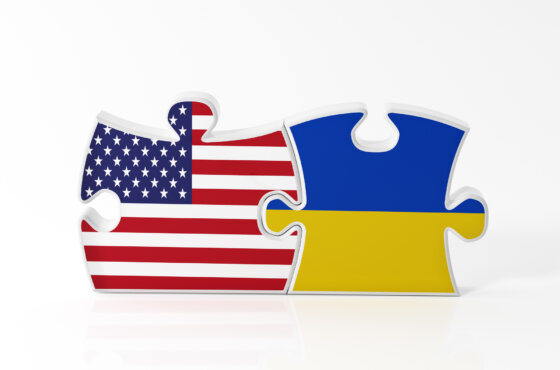Why is the law on combating Soviet symbols not working in Georgia?
Last week the Verkhovna Rada of Ukraine adopted a package providing for ban on the use of Soviet and Nazi symbols. In Georgia, the struggle against the Soviet and fascist symbols began four years ago, but today the hammer and sickle, as well as slogans of the Soviet era, are found both in the capital and in the regions of Georgia.
In 2011, the Charter of Freedom, initiated by the then member of the parliamentary minority, Gia Tortladze, was supported unanimously by Georgian deputies.
The Charter at the legislative level declared the fight against Soviet and fascist symbols, and also introduced a number of official restrictions to the former high-ranking officials of the Communist Party and the Komsomol and those who secretly cooperated with the Soviet secret services.
Proponents of the bill then expressed confidence that the law would strengthen security and help Georgia to part with the remnants of the Soviet past.
But today, four years later, both the author of the law and the initiators of the changes made in it agree that the ban on communist symbols and official restrictions still remain on paper.
Charter of Freedom
Adoption of the law on lustration more than once became the cause of heated debate in Georgia. Despite the examples of Eastern European countries, for several years attempts to pass a law prohibiting Soviet intelligence officers from occupying positions in state structures did not lead to success.
The adoption of the Freedom Charter, which, along with the ban on Soviet symbols, related to lustration issues, was considered by the author and initiator of the bill, Gia Tortladze, although belated, but a victory “for which the Georgian public has been waiting for 20 years.”
Today Tortladze does not hide that the law adopted four years ago does not work.
“I believed and still believe that such a law should have been adopted. But this law does not work, and this, of course, is very disappointing. The commission doesn’t work, the lists aren’t checked, and no one knows who was who,” Tortladze tells the BBC.
A law restricting the right of former employees of the Soviet special services to occupy high executive positions in the executive branch provided for the creation of a commission at the Ministry of Internal Affairs to keep a register of those who secretly cooperated with the special services of the Soviet Union.
According to the law, the commission publishes data only for those former agents who continue to occupy positions prohibited for them and did not voluntarily resign within the statutory period.
One meeting
Representatives of the ruling coalition agree that the implementation of the Freedom Charter has been delayed.
The commission under the Ministry of Internal Affairs, which includes staff of the department and one representative from each parliamentary faction, was created only about a year ago, after the amendments to the law initiated by members of the ruling coalition Levan Berdzenishvili and Tamar Kordzaya were introduced.
According to Berdzenishvili, during all this time the commission held only one meeting, and deputies still have not received information from the department about persons who today may occupy “forbidden positions.”
“The commission met and worked, but the matter did not go further... We asked the Ministry of Internal Affairs to check all officials to establish whether there are people among them who violate this law. We have not yet received an answer, although I know exactly who is breaking the law and should not be in power,” says Berdzenishvili.
He notes that the archive of the Communist Party is in the Ministry of Internal Affairs, therefore it is the Ministry of Internal Affairs that must provide the relevant documents for the commission to make a decision to dismiss an official from office in accordance with the law.
But if, for example, with the former secretaries of the district committee of the commission, only documentary evidence is needed, then it is much more difficult to identify the former Soviet agents, Berdzenishvili said.
“The documents were taken to Russia, but Georgia has not yet officially contacted Russia in this regard. We will strive for this - that is, the commission must turn to the Russian side with a request that these archives, or at least copies of them, be provided,” Levan Berdzenishvili said in an interview with the BBC.
He notes that former intelligence agents have the right to run for parliament or local government, but the voter receives information about their past.
The fight against symbolism
According to the law, the commission created by the Ministry of Internal Affairs collects information on the use of communist, totalitarian or fascist symbols by administrative bodies, as well as on the use of such symbols on state-owned objects.
Despite the fact that the traces of the Soviet era in the form of bas-reliefs and even street names are still found in the regions of Georgia, the commission did not make any concrete decision on their elimination.
Levan Berdzenishvili says that the reason, to a certain extent, lies in the passivity of the public.
According to the deputy, the commission formally had no reason to hold the next meeting, since there were no complaints about the use of communist symbols.
According to him, the commission does not affect the use of communist or fascist symbols by private individuals.
“If I am a private person and erected a monument to Stalin in my yard, the commission has no right to contact me,” says Levan Berdzenishvili. “But, according to amendments to the law, every citizen has the right to go to court on this matter... So far there has not been a single such appeal.”
Idle law
According to the director of the Institute for the Development of Freedom of Information, George Kldiashvili, the law that concerns lustration in Georgia should have been passed much earlier.
According to him, the implementation of such a law is hampered by the fact that during a fire in the former KGB building in Tbilisi at the beginning of 1990's, most of the archive was destroyed.
“Almost 80% of the documents were burned, and the so-called documents of the current period on those individuals who collaborated with the KGB were taken to Russia. Today we can say that the Russian side can carry out lustration of these individuals more effectively than Georgia,” Kldiashvili told the BBC.
According to Gia Tortladze, the fact that most of the documentation on the former agents is in Russia gives Moscow a serious lever of influence on Georgia. According to him, the fact that neither the former nor the current authorities take real steps to translate the law into life only strengthens the suspicions about the most diverse politicians in Georgia.
“Both in today’s and in the previous government and parliament of Georgia, there are probably many people who are affected by the lustration law, which is why they are delaying. I simply can’t find any other explanation,” said Gia Tortladze.
Berdzenishvili says that the law needs regular amendments in order for the commission created at the Ministry of Internal Affairs to be more effective and really work. According to him, such a bill is already being prepared and will be submitted to parliament this fall.
“Apparently, in Georgia it is necessary to pass laws where everything is spelled out in detail, because otherwise it becomes possible to create commissions that will not work,” says Berdzenishvili.
The BBC was told in the Georgian Ministry of the Interior that the commission plans to contact local authorities in the near future regarding issues related to the prohibition or elimination of Soviet symbols.
Subscribe to ForumDaily on Google News










